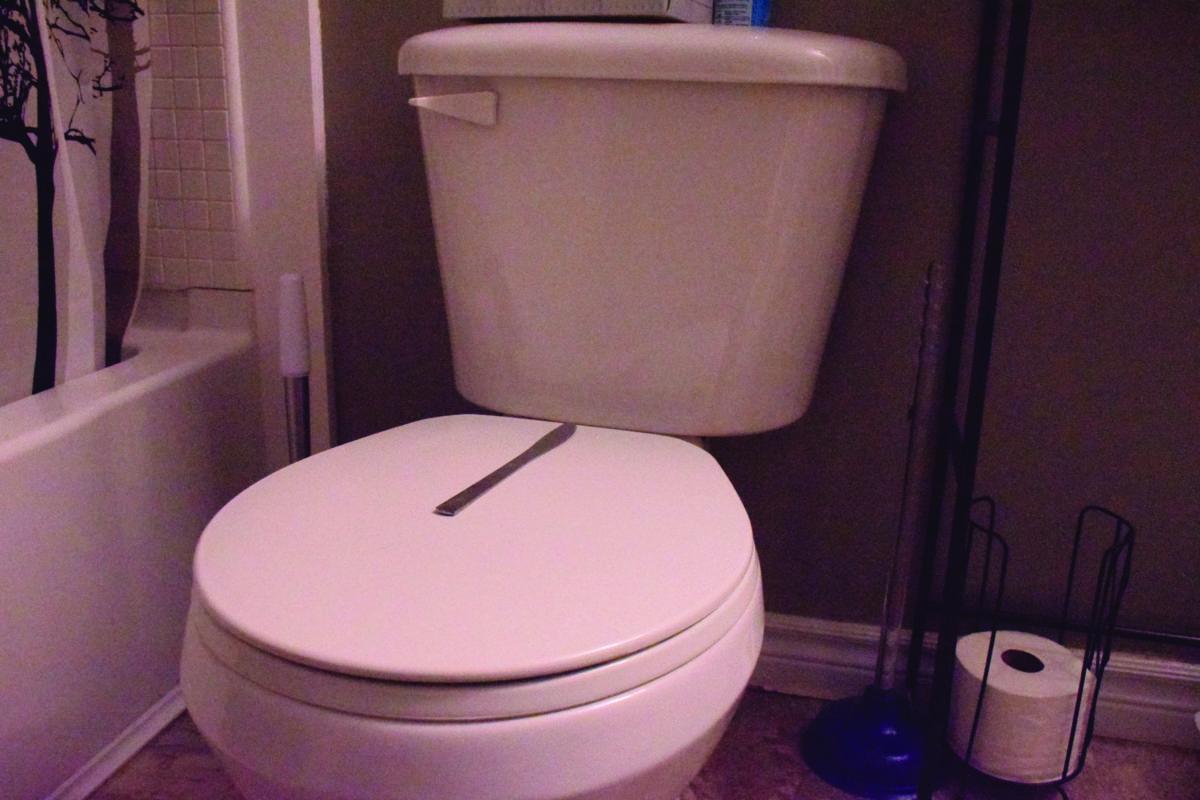It took Nick Decarie less than 24 hours to discover his new roommate was a cocaine addict.
The fourth-year St. Thomas University student had just moved into his second apartment at the start of the school year. It didn’t take long for the new roommate to make the environment for other tenants “completely unlivable.”
Neighbours alleged the man burglarized their homes. He frequently threatened other roommates. The police were called multiple times.
“I was constantly terrified of going home, and I had to let my professors know that I wouldn’t always be able to come to class or perform my best,” Decarie said.
Decarie stayed with friends multiple times a week, avoiding threats and harassment. He and the other roommates would come home quietly, go to their rooms, lock the doors and not leave unless they had to.


The residents documented everything and contacted their landlord to begin the eviction process after just a few weeks. It took another three to four weeks to form a deal with the the problematic roommate, which included a hearing by the New Brunswick Residential Tenancies Tribunal.
Decarie’s advice for future student renters? Don’t rent with people you don’t know.
Kim Snow, N.B.’s chief residential tenancies officer, seconds that guidance. She recommends renters fully understand a lease prior to signing it, as well as the implications of a binding contract.
“You can’t just say, ‘I don’t like that roommate, I’m going to leave,’ because there can be serious consequences,” she said.
Snow said it’s important for tenants and landlords to put everything in writing, outlining conditions including pets, smoking policies, snow removal, utilities and subleasing. This prevents assumptions from being made later on.
She also recommends students pay close attention to the terms of the contract, which indicate the length of the lease and the number of days of notice renters need to provide before moving out.
Do your homework
Before moving into an apartment, students should complete an accommodation inspection report, which notes the condition of the walls, curtains, floor, ceiling, stove and other parts of the apartment.
“If there’s any kind of damage or marks on the walls at the end of the tenancy, you couldn’t be blamed for it if it’s outlined at the beginning,” Snow said.
“Especially with cell phones today, I always encourage people to take pictures when they move in and keep those until the end of their tenancy.”
Abby Scott, a third-year STU student, didn’t realize the toilet in her apartment wasn’t working properly until moving in.
It was making a strange sound and not flushing normally. It eventually stopped working entirely. Scott contacted her landlord about the issue repeatedly, but weeks went by and nothing was done.
Then one day Scott returned home and saw a butter knife on the bathroom floor next to the toilet. She asked her roommate about it, who was also puzzled. She later heard her landlord had stopped by and tried to fix the issue, and had used a knife from the kitchen as a tool — all without advance notice.


N.B. law gives landlords the right to enter a tenant’s premises in emergency situations, but they are required to give 24 hours notice for inspections and seven days notice for repairs.
The worst part of it all was the flushing problem was worse, Scott said. She figured out how to do the repair herself, only to have a plumber sent by the landlord show up at her door without notice.
Terms of the lease dictate whether renters can address damages themselves. Decarie’s first roommate dented a wall and planned to repair it with drywall himself. But their lease said any attempts to make repairs would result in the loss of their security deposit.
Understanding security deposits
Provincial law requires landlords bring the deposit to Service New Brunswick within 15 days. Snow said tenants receive a certificate of deposit from the government within four to six weeks.
For Scott, damage deposits have posed a challenge. When she changed units in her building, she was told her original deposit couldn’t go towards covering repairs in her old unit, as the funds had been transferred. She had to pay out of pocket for the damages, plus more due to an increase in value at the new apartment.
At the end of a tenancy, renters must apply online at the SNB website to get their deposit back. The process takes about three weeks. However, if both the tenant and landlord sign a security deposit agreement form, the funds can be returned in ten days or less.
But this isn’t always the case. This security deposit fund system seems to be unique to Canada. Reports in September 2017 showed about $25-million in tenant security deposits was being held in the province’s grip, even from renters who had moved out of their respective homes years ago.
Be informed
Snow recommends students inquire about their landlords prior to entering a contract, by asking around and talking to current and former tenants. She said students should make sure they are dealing with someone reputable who they feel comfortable with.
That’s advice Scott wishes she would have received before renting.
“I didn’t do a background check, I really wish I did,” she said.
“I’ve heard rumours of people who live in my building and have left because they didn’t like her, and now I can see why.”
Snow said students should understand their responsibilities, and those of their landlords, before renting.
Learn more about renting in New Brunswick at: www.snb.ca/irent
Quick Tips from the New Brunswick Rental Tenancies Tribunal:
- Security deposit: You should receive a certificate of deposit from the tribunal within four to six weeks after paying.
- Ask around: See what others have to say about your potential landlord.
- Choose roommates wisely: Remember that you and your roommates are equally responsible for the obligations in the lease, and dealing with any problems or consequences.
- Slow down: Do not sign a lease before visiting and thoroughly inspecting an apartment.
- Put it in writing: Protect yourself by having your lease, inspection report, and any other issues documented in writing.
- Read your lease carefully: Fully understand the terms that you’re agreeing to prior to signing. Remember that a lease is a binding document.
- Pay on time: If you pay late, your landlord can begin the process to evict you.
- Don’t forget the notice period: You must give advance written notice to move out. This is addressed in your lease.
- Get renter’s insurance: While not legally required, it is recommended that you protect yourself instead of waiting for something bad to happen.
